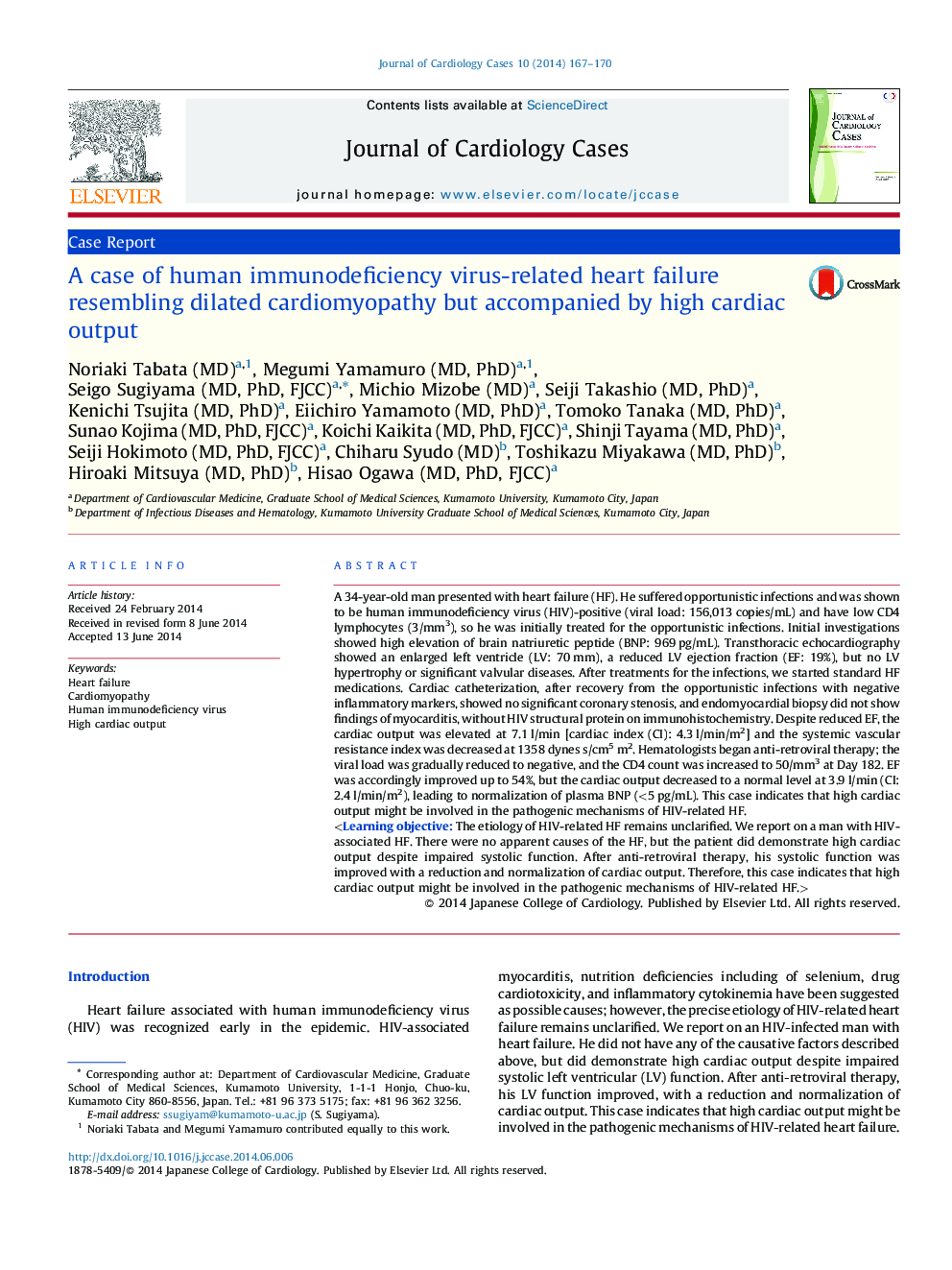| Article ID | Journal | Published Year | Pages | File Type |
|---|---|---|---|---|
| 5984558 | Journal of Cardiology Cases | 2014 | 4 Pages |
A 34-year-old man presented with heart failure (HF). He suffered opportunistic infections and was shown to be human immunodeficiency virus (HIV)-positive (viral load: 156,013 copies/mL) and have low CD4 lymphocytes (3/mm3), so he was initially treated for the opportunistic infections. Initial investigations showed high elevation of brain natriuretic peptide (BNP: 969 pg/mL). Transthoracic echocardiography showed an enlarged left ventricle (LV: 70 mm), a reduced LV ejection fraction (EF: 19%), but no LV hypertrophy or significant valvular diseases. After treatments for the infections, we started standard HF medications. Cardiac catheterization, after recovery from the opportunistic infections with negative inflammatory markers, showed no significant coronary stenosis, and endomyocardial biopsy did not show findings of myocarditis, without HIV structural protein on immunohistochemistry. Despite reduced EF, the cardiac output was elevated at 7.1 l/min [cardiac index (CI): 4.3 l/min/m2] and the systemic vascular resistance index was decreased at 1358 dynes s/cm5 m2. Hematologists began anti-retroviral therapy; the viral load was gradually reduced to negative, and the CD4 count was increased to 50/mm3 at Day 182. EF was accordingly improved up to 54%, but the cardiac output decreased to a normal level at 3.9 l/min (CI: 2.4 l/min/m2), leading to normalization of plasma BNP (<5 pg/mL). This case indicates that high cardiac output might be involved in the pathogenic mechanisms of HIV-related HF.
